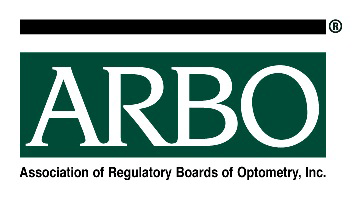February 15, 2022
COPE Accreditation of Optometric Continuing Education
COPE®. The Council on Optometric Practitioner Education, the only nationally recognized accreditation system for optometric continuing education (CE), was developed by ARBO to assist ARBO’s member licensing boards by providing assurance that the optometric CE courses they accept for license renewal are of the highest quality.
COPE accreditation addresses professional practice gaps and focuses on improving knowledge, performance in practice, and patient outcomes with improved public health as the goal. COPE is the sole entity available to Boards of Optometry that addresses these needs.
COPE’s Accreditation Criteria are designed to change:
- Optometrists’ competence (strategies for translating new knowledge into action) or
- Optometrists’ performance (what they do in practice) or
- Patient outcomes.
COPE is also a valuable tool that can be referenced when looking to expand the scope of practice. COPE’s accreditation process has been designed to be equivalent to CE/CME accreditation in most mainstream healthcare professions including, but not limited to, medicine, pharmacy, and nursing.
COPE also represents optometry in the Joint Accreditation for Continuing Education in the Health Professions collaborative. Joint Accreditation promotes interprofessional continuing education activities specifically designed to improve interprofessional collaborative practice in health care delivery.
COPE has evolved over time from a CE approval process to a true CE accreditation system based on specific criteria and meeting the highest standards in healthcare CE/CME accreditation.
Approval vs. Accreditation
State and provincial optometry boards originally ‘approved’ CE. The process was not standardized and was fraught with efforts by commercial and professional entities to use CE as a method to promote their products or services. ‘Approval’ requirements involved well-meaning volunteers with little or no experience or expertise in adult learning theory or CE/CME accreditation. As a result, almost any CE from any source could be ‘approved’.
Accreditation, on the other hand, requires specific guidelines and standards to be followed. Specifically, COPE accreditation incorporates accreditation criteria and Standards for Integrity and Independence, which ensure a high-quality, evidence-based, non-biased program of education. The COPE accreditation requirements provide not only the highest quality CE that meets industry standards but also the strongest defense against any criticism of optometric CE used for license renewal.
The COPE accreditation program is the gold standard in optometric continuing education and is a model for CE accreditation throughout the healthcare industry.
Top 5 Reasons a Regulatory Board Should Use COPE:
- Highest Standards in Healthcare. COPE has evolved from an approval process to an accreditation system that meets the highest standards in healthcare.
- Improved Patient Outcomes. COPE CE addresses practice gaps and focuses on improving knowledge, performance, and patient outcomes.
- Accredited. COPE CE is designed to be relevant, effective, evidence-based, and free from commercial influence.
- Equivalency with Medicine. When looking to expand the scope of practice, COPE’s equivalency to medicine’s accredited CME means legislators are assured that COPE accredited continuing education is of the highest quality.
- Public Health Assurance. Public health is best protected by requiring accredited CE which measures outcomes and incorporates quality improvement measures.
